Results from Second Test of Milk: ALARMING as before
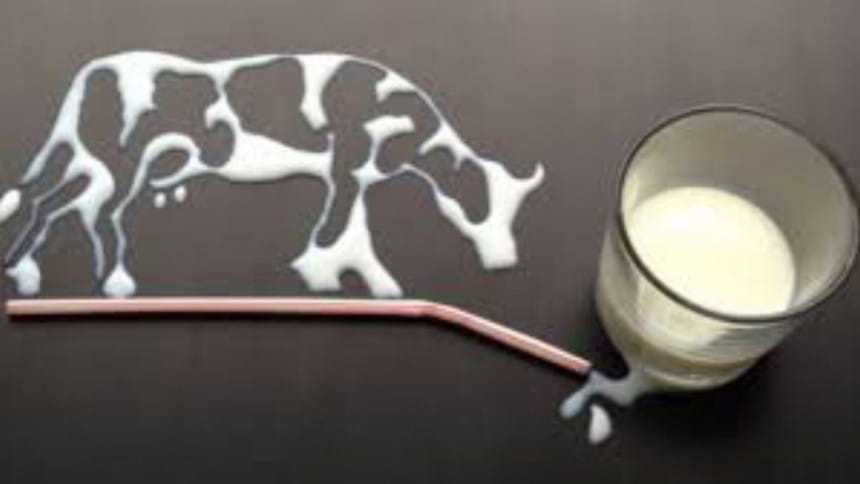
Dhaka University researchers have once again found antibiotics in milk available in kitchen markets and grocery shops.
Their second round of study detected four antibiotics used for humans -- Oxytetracycline, Enrofloxacin, Ciprofloxacin and Levofloxacin -- in all of the 10 samples of pasteurised and non-pasteurised milk they tested.
A media release issued by Prof ABM Faroque, immediate past director of Biomedical Research Centre, unveiling the findings yesterday said three of the samples contained all the four antibiotics while six had three. There were two antibiotics in one sample.
On June 25, the Pharmacy Faculty and Biomedical Research Centre said they detected detergent and three types of antibiotics in packaged milk.
On the same day, the BSTI, the country’s lone quality control authority for food, submitted a report to the High Court, claiming it did not find anything harmful in the milk samples it examined.
The university’s pharmacy department subsequently denied any in-volvement with the study.
On July 9, the Ministry of Fisheries and Livestock threatened legal action against the DU researchers if they fail to produce their study report pub-lished in an international peer-reviewed journal.
In the first study, the DU researchers tested seven samples of widely-sold pasteurised milk from five brands and three samples of unpasteurised milk.
Prof Faroque, then director of Biomedical Research Centre, led the re-search and unveiled the findings at a press conference on June 25.
“Antibiotics for humans and animals are completely different. We need to stop the use of human antibiotics on animals,” he then said.
He warned that the rampant use of antibiotics meant for humans on an-imals can have fatal consequences if they are consumed by human be-ings.
Asked whether the antibiotics can be removed through evaporation, the professor said some antibiotics may be spoiled by evaporation and some not.
He added excessive use of antibiotics like enrofloxacin and cyprosin in cattle feeds may cause antibiotic resistance, which reduces or eliminates the effectiveness of antibiotics on bacterial infection and diseases.
The first study began in May last year and the samples were collected from Shahbagh, Chankharpool and Palashi in the capital.
SECOND TEST
Talking to The Daily Star yesterday, Prof Faroque said they conducted the second test in continuation of the war against adulterated food products. They would continue to do so until the quality of food prod-ucts come to a standard position.
“We did the second test to make sure that the findings of first research were true. Maybe antibiotics were present only in the samples that were tested in the first research. That is why we collected same number of samples of same brands from the same area for the second test. We also used the same apparatus from the last round of test.”
“But,” he said, “the results are as alarming as before.”
The professor added, “The only difference is that we found three types of antibiotics in the first study -- this time we found four.”
Asked why the results of two tests were different, he said they need to conduct further research to find out the reason behind that.
In the press release, he said, “We will try to publish the results of other tests along with this one. We hope that the information made public will help milk producers improve the quality of the products by over-coming their managerial weaknesses; the government agencies con-cerned will no longer take the presence of antibiotics lightly; they will conduct regular tests and thus improve milk quality of the country.”
Besides, the government officials will not have to look for any foreign conspiracy instead of taking steps for addressing this public health con-cern, it added.
About the rejoinders issued by the DU pharmacy department which dis-owned the earlier study, Prof Faroque said, “We neither claimed that the research was conducted by pharmacy department nor asked the depart-ment to own it.
“Both the studies were done by a group of researchers under the Biomed-ical Research Centre and Pharmacy Faculty.”
He said, “My war is not against any person or any specific brand. I did this to fulfill my responsibility in ensuring safety of food.”
He also alleged that he felt vulnerable because of the language some government officials used in criticising his research.
“The language about our researcher group is objectionable. Question about our laboratory quality was also raised. But researches conducted in our laboratory are getting international patent. How they got interna-tional patent if the laboratory quality is substandard.”
He said his coresearchers also got threat via phone.
Speaking about the safety parameters of Bangladesh Standards and Test-ing Institution (BSTI) for testing milks, he said the parameters should be increased and the testing procedure and laboratory facilities should also be developed.
Experts say BSTI tests milk only against nine parameters and has no mechanism to detect harmful agents like antibiotics and pesticides when developed nations do that against 23-30 parameters.
The DU researchers used 19 parameters for the second test.

 For all latest news, follow The Daily Star's Google News channel.
For all latest news, follow The Daily Star's Google News channel. 

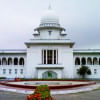
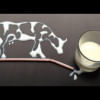
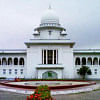

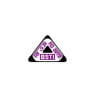


Comments